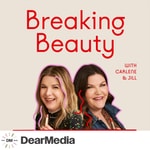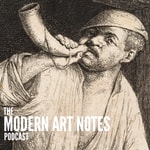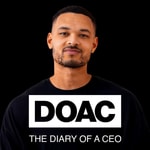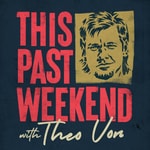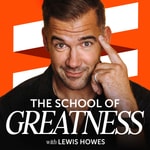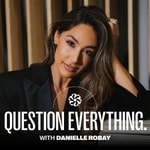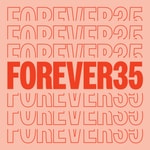Pulling The Thread with Elise Loehnen – Details, episodes & analysis
Podcast details
Technical and general information from the podcast's RSS feed.
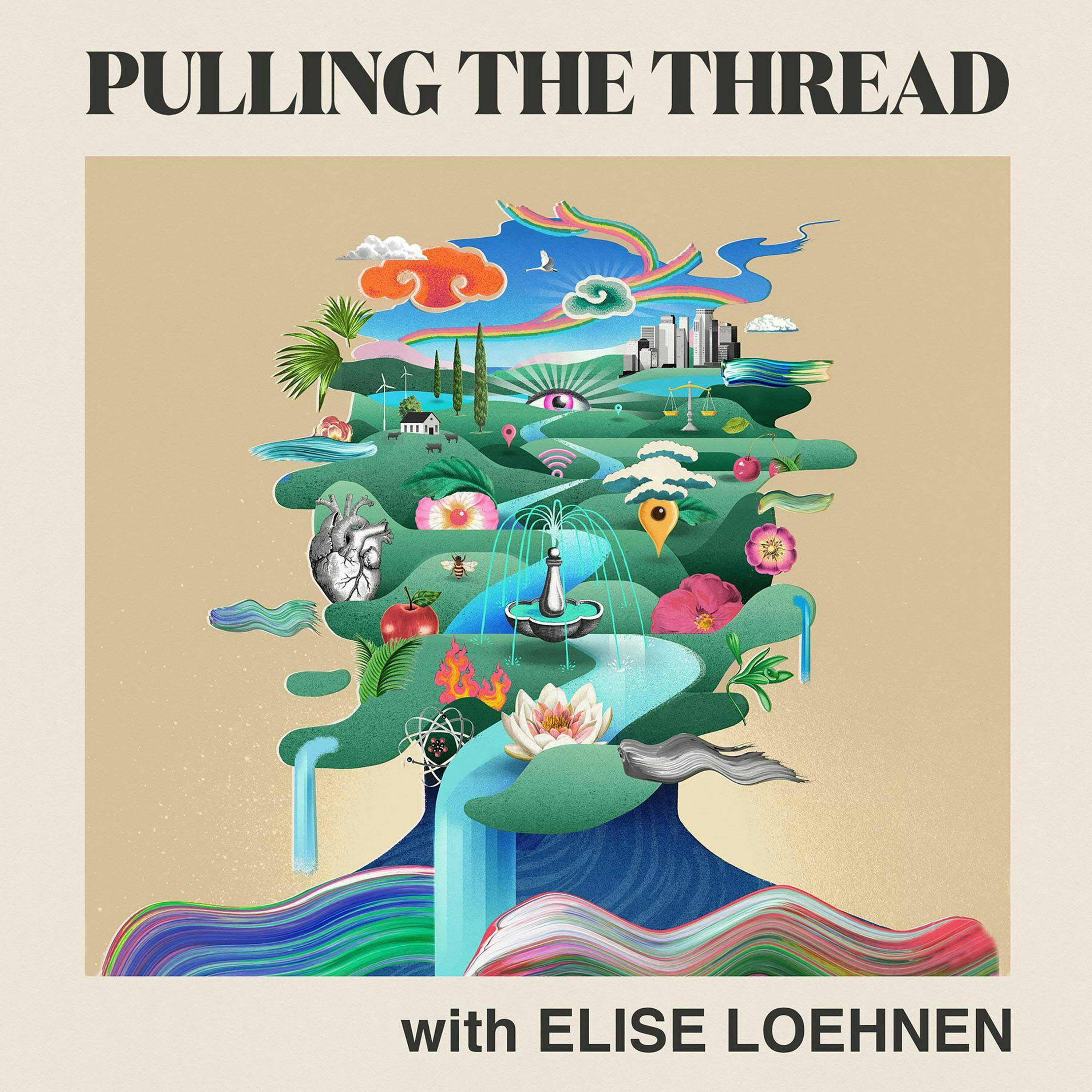
Pulling The Thread with Elise Loehnen
Elise Loehnen
Frequency: 1 episode/6d. Total Eps: 238

Writer Elise Loehnen explores life’s big questions with today’s leading thinkers, experts, and luminaries: Why do we do what we do? How can we understand and love ourselves better? What would it look like to come together and build a more meaningful world?
Sales and Distribution by Lemonada Media https://lemonadamedia.com/
Recent rankings
Latest chart positions across Apple Podcasts and Spotify rankings.
Apple Podcasts
No recent rankings available
Spotify
No recent rankings available
Shared links between episodes and podcasts
Links found in episode descriptions and other podcasts that share them.
See all- https://omnystudio.com/listener
834804 shares
- https://www.rainn.org/
874 shares
- https://gretchenrubin.com/podcasts/
598 shares
- https://www.instagram.com/tobemagnetic
625 shares
- https://www.instagram.com/thomashuebl
456 shares
RSS feed quality and score
Technical evaluation of the podcast's RSS feed quality and structure.
See allScore global : 58%
Publication history
Monthly episode publishing history over the past years.
Who Am I If I’m Not Pleasing Anyone? (Meggan Watterson)
jeudi 24 juillet 2025 • Duration 58:58
Today, I’m talking to Meggan Watterson—theologian and author of The Girl Who Baptized Herself—about the importance of being embodied, the search for self, where we derive power, and the way that culture is edited and passed down to us. Watterson tells the incredible stories behind the Gospel of Mary (and what happened to Mary Magdalene), and the Acts of Paul and Thecla (and what happened to Thecla). We also explore where my work meets hers, and the birth of the seven powers, which become the seven cardinal vices, or the seven deadly sins.
For the show notes, head over to my Substack.
See omnystudio.com/listener for privacy information.
How to Be an Effective Idealist (Rutger Bregman)
jeudi 17 juillet 2025 • Duration 57:42
Rutger Bregman is the New York Times–bestselling author of Moral Ambition. Today, he shares his model for living a more meaningful life. It’s not about being an idealist, or following your “passions.” It is, in many ways, about effectively solving the problems in our lives using the talents we already have.
For Rutger Bregman’s work (including that amazing viral Davos clip, in case you missed it), head over to my Substack.
See omnystudio.com/listener for privacy information.
Managing Creative Energy and When to Say No (Monthly Solo)
mardi 27 mai 2025 • Duration 50:33
In May’s monthly solo episode, I’m reflecting on: motherhood, my mom, the Performance of Parenthood, and what provokes my anger around Mother’s Day. How badly the world needs us all to hold a balance of the masculine and feminine—and how badly we need the feminine to rise in men. What it might look like if we didn’t operate out of fear. Applying my writing process and system to other areas of life. What keeps us from saying no, and what keeps us from saying yes—based on our Enneagram types. And, more.
For the show notes, head over to my Substack.
Learn more about your ad choices. Visit podcastchoices.com/adchoices
See omnystudio.com/listener for privacy information.
Where Does Fatphobia Come From? (Kate Manne)
jeudi 25 janvier 2024 • Duration 57:41
“I think there's a lot of assumptions in play here that a good body is a thin one, a thin body is achievable, a thin body is achievable for everyone, and that you will be fully in control of your health and your mortality if you're thin, which is also just of course a myth. There are plenty of fat, healthy, happy people, and there are plenty of sadly unhealthy, thin people who should not be regarded as any more or less worthy than a fat person who suffers from a similar health condition. These people should be receiving, in most cases, just the same treatment. And yet, for the fat person who suffers from the same health condition, the prescription is weight loss, whereas for the thin person, they're given often closer to adequate medical care.”
So says, moral philosopher and Cornell professor Kate Manne, one of those brilliant and insightful observers of culture working today. She’s the author of two incredible books about misogyny—Entitled: How Male Privilege Hurts Women and Down Girl: The Logic of Misogyny—and has coined mainstream terms like “himpathy,” her word for the way we afford our sympathy to the male aggressor rather than the female victim. The example she uses is the trial of Brock Turner, the Stanford swimmer who sexually assaulted Chanel Miller, and the way the judge and the media seemed more concerned about Turner’s sullied future than Miller’s experience and recovery.
Her newest book is just as essential: It’s called Unshrinking: How to Face Fatphobia and it explores Manne’s own experience of being a fat woman in our unabiding culture. If you read the Gluttony chapter of On Our Best Behavior, some of the material she explores will be familiar—but in Kate Manne style, she drives it all the way home. I love this conversation, which we’ll turn to now.
MORE FROM KATE MANNE:
Unshrinking: How to Face Fatphobia
Entitled: How Male Privilege Hurts Women
Down Girl: The Logic of Misogyny
Follow Kate Manne on Twitter
Kate Website
Kate’s Newsletter
Learn more about your ad choices. Visit podcastchoices.com/adchoices
See omnystudio.com/listener for privacy information.
On Self-Regulation (Aliza Pressman, PhD)
jeudi 18 janvier 2024 • Duration 57:23
“I think that with regulation, the funny thing is that it's either I want to control the weather around my children, or I want to control my children, but regulation is very much a self thing for adults and a co regulation thing between you and other, especially you and a young person whose brain isn't fully able to self regulate. But if you're so focused on controlling all these outside things that you can't, like the weather, then you get to let yourself off the hook of getting into the much harder, but more possible work of self regulation and of figuring out your own stuff. And all of that has much bigger benefits to your kids, of course, than making the weather perfect around them, but it just is harder. Even though it shouldn't be so easy to change the weather, but it does appear that is what happens, right?”
So says Aliza Pressman, development psychologist and Assistant Clinical Professor in the Division of Behavioral Health Department of Pediatrics at the Icahn School of Medicine at Mount Sinai Hospital where she is co-founding director of The Mount Sinai Parenting Center. Aliza is also the host of the hit podcast, Raising Good Humans, and the author of The Five Principles of Parenting: Your Essential Guide to Raising Good Humans.
I love Aliza for many reasons: Yes, we all want friends who are developmental psychologists on speed-dial, but she’s also different in the way she delivers advice. For one, she cuts right to the point, reminding and reaffirming that while yes, every family has its own complicating factors, the basic tenets of raising good humans are simple. You don’t need your own PhD in parenting to do the job, nor do you need a PhD to re-parent yourself, you need to focus on the elements she outlines in The Five Principles of Parenting: Your Essential Guide to Raising Good Humans: Relationship, Reflection, Regulation, Rules, and Repair. As she explains, through practice and normalizing imperfection, along the way you’ll discover the person you’re ultimately raising is yourself. By becoming more intentional people, we become better parents. By becoming better parents, we become better people.
In today’s conversation, we touch on these tenets while also exploring the particular social world we find ourselves in, one in which there seems to be an expectation that we can and should control the weather for our kids.
MORE FROM ALIZA PRESSMAN, PhD:
The Five Principles of Parenting: Your Essential Guide to Raising Good Humans
Aliza’s Website
Follow Aliza on Instagram
Aliza’s Newsletter
Learn more about your ad choices. Visit podcastchoices.com/adchoices
See omnystudio.com/listener for privacy information.
Seeing Each Other’s Pain (Rabbi Sharon Brous)
jeudi 11 janvier 2024 • Duration 58:48
"How do we center the voices that traditionally and historically we know existed, but were only marginalized in the tradition? And that does feel like holy work. And for me, in part, when I encountered a tradition that was so driven by male stories and male voices, I felt so alienated by it when I first began to encounter it. And I had this moment, which I think lots of women faith leaders have, which is maybe this just isn't for me. I mean, I'm not intended to ever even read these texts, let alone teach these texts. And then I had an awakening where I realized, not only is it meant for me, but I have an obligation. It was waiting for me. It's waiting for me and for so many more people because there's a void until our voices enter this space."
So says Rabbi Sharon Brous, a wise and wonderful friend, and the founder and senior rabbi of IKAR, a Jewish community founded to attend to critical questions. As Rabbi Brous writes in her beautiful new book The Amen Effect: Ancient Wisdom to Mend Our Broken Hearts and World , “How can our Jewish tradition help us live lives of meaning and purpose? And: Given our faith and history, who are we called to be in this time of moral crisis? We launched IKAR—our best attempt to address those questions—on a hope and a prayer, with no funding, no space, and no business plan. What we had was a shared conviction that faith communities needed to be spiritually alive and morally courageous at the same time.”
I read Sharon’s beautiful book last summer, and could not wait to talk to her about it. So we recorded our conversation early, before the Jewish High Holidays, at the beginning of August, months before October 7th. Rabbi Brous’s work in general is highly prophetic and brave—she has been a fierce and vocal critic of the increasingly right wing Israeli government, even as many Rabbis try to steer clear of politics. This conversation, which is not about Israel, is also highly prophetic and brave: It’s about the dire need for interfaith conversation, for chipping away at the calcified belief structures of religions that don’t fully serve our broken world, and for being with each other, particularly on our most painful days. This, in fact, is the theme of The Amen Effect, which is about an ancient mishnah, or overlooked piece of Jewish law that instructs us on the sacred act of circling—and tending, face-to-face, to each other’s agony and grief. In today’s conversation Sharon and I also talk about social justice and responsibility, a conversation that I’m hoping to pick back up with her in the new year, as so many of us feel a little lost and confused. While Rabbi Brous and I thought about doing a second episode as a fast follow, we decided to wait a beat—if you want to hear her talk about Israel and Gaza, I highly recommend you listen to her conversation with Ezra Klein, where the two talk about how some of Israel’s actions are indefensible even as Israel itself must be defended. Her sermons are also stunning, and available on the IKAR website.
I think Rabbi Brous is incredible, and I’m not alone. She offered the blessing at both Biden and Obama’s inaugurations, and led Hannukah at the White House this year. She manages to teach and model what so many of us need to learn how to do: We must learn how to hold each other close even through disagreement, disappointment, and despair. The Amen Effect offers some ideas for how this work might begin.
MORE FROM RABBI SHARON BROUS:
The Amen Effect: Ancient Wisdom to Mend Our Broken Hearts and World
IKAR’s Website
Learn more about your ad choices. Visit podcastchoices.com/adchoices
See omnystudio.com/listener for privacy information.
Embracing the Shadow (Connie Zweig, PhD)
jeudi 4 janvier 2024 • Duration 50:51
“If you have a reaction to a stranger or someone in the media or someone in politics or someone who's just providing this kind of blank slate because you don't really know him or her, then it's a projection. And yes, there's often a sensation in the body that's negative. It could be fear, it could be distrust, it could be disgust, right? And then there's the flip side. There's positive projection, which happens in the spiritual universe a lot. When someone is looking for a charismatic leader, then they're going to project their own awakening, their own compassion, their own wisdom onto the leader, the clergy person. So the content of the projection can be anything, what we view as negative, what we view as positive.”
So says Connie Zweig, a Jungian therapist and author who has focused much of her career exploring and teasing out the implications of the shadow, which is how Carl Jung referred to the unconscious. Chances are that you’ve been hearing more and more about shadow work—it’s having a moment—in part, I’m convinced, because it’s a concept whose time has come. As I’ve written about a lot in my Substack newsletter, we are swimming in collective shadow, unable and unwilling to process our share of it. When we don’t take on this unconscious material, or darkness, our tendency is to project it onto other people and groups, to get away from it as quickly as possible. But, of course, it doesn’t work like that—our shadow is ours. It’s our blind spot. When we’re willing to face our shadow, to access it, to allow it to emerge, we often find that it’s full of gold. In fact, Jung believed that the shadow is the source of all of our energy, the main mechanism for growth—ask anyone who has gone through hard or dark times and they will likely tell you that the experience propelled them forward in unexpected ways, often for the better.
Connie and I explore all of these concepts and then some, as she’s one of the most prodigious writers in the space. She co-authored Meeting the Shadow and Romancing the Shadow, which are essential anthologies and texts, and then more recently wrote Meeting the Shadow on the Spiritual Path, which explores what happens when the shadow, or darkness, is unresolved in spiritual and religious communities. She’s also the author of The Inner Work of Age: Shifting from Role to Soul, which is an exploration of the shadow of aging in our ageist culture. I’m hoping she comes back to the podcast soon so we can discuss that book at length.
MORE FROM CONNIE ZWEIG, PHD:
The Inner Work of Age: Shifting from Role to Soul
Romancing the Shadow: A Guide to Soul Work for a Vital, Authentic Life
Meeting the Shadow: The Hidden Power of the Dark Side of Human Nature
A Moth to the Flame: The Life of the Sufi Poet Rumi
Connie Zweig’s Website
Learn more about your ad choices. Visit podcastchoices.com/adchoices
See omnystudio.com/listener for privacy information.
Five Things I’ve Learned this Year
jeudi 28 décembre 2023 • Duration 38:32
Today, it’s just me. I thought I’d round out the year by trying something different, and offering five big things I’ve learned this year.
THINGS I REFERENCE:
- Owning Our Wanting, Wants vs. Needs
- Transactional Relationships & Shadow Vows
- Undoing the Drama Triangle, Are You Victim, Villain, or Hero?
- Facts vs. Stories
- Transcend and Include
Learn more about your ad choices. Visit podcastchoices.com/adchoices
See omnystudio.com/listener for privacy information.
What Actually Motivates Change? (Carrie Wilkens, PhD): ADDICTION
mardi 26 décembre 2023 • Duration 55:24
“Nobody wants to be somebody with a serious substance use problem. Nobody wants to be addicted to a substance. I mean, it doesn't feel good. Dependency doesn't feel good. And we end up in there anyway, right? So I think if we can bring compassion and understanding to, wow, it must really be working in a way that's really powerful for them to keep pursuing it. And then you've got the physical effects of substances, right? So then our bodies physically get dependent, you know, so it starts out as like, it's probably working for an emotional or something in our life and then we become physically dependent on it. And then it's a whole nother host of things in terms of how do you stop it? And people don't fully understand treatment in terms of there's medications available.”
So says Carrie Wilkens, PhD, a psychologist who is attempting to change the way we think about and address recovery and treatment—specifically by simply presenting evidence for what motivates change. AFter all, she is the co-president and CEO of CMC: Foundation for Change, a not-for-profit with the mission of improving the dissemination of evidence-based ideas and strategies to professionals and loved ones of persons struggling with substance use.
As you’ll hear in this conversation—and throughout the entire series—we have not collectively been served by the mono-myth of addiction, that it’s only solved through harsh intervention and confrontation, that addicted people must hit rock-bottom, and that any involvement from concerned family and friends is inherently co-dependent or enabling.
As Dr. Wilkins explains, this simply isn’t true: In fact, evidence overwhelmingly suggests that harsh confrontation and intervention works AGAINST recovery, and that there is a very specific and meaningful role for family to play in what can often feel like a family illness.
The CMC:FFC team’s Invitation to Change approach is an accessible set of understandings and practices that empower families to remain engaged and be effective in helping their struggling loved one make positive changes. The approach has been widely used across the country and is utilized in trainings with laypeople and professionals.
She is co-author of the award-winning book Beyond Addiction: How Science and Kindness Help People Change, a practical guide for families dealing with addiction and substance problems in a loved one based on principles of Community Reinforcement and Family Training (CRAFT), and co-author of The Beyond Addiction Workbook for Family and Friends: Evidence-Based Skills to Help a Loved-One Make Positive Change.
Dr. Wilkens is also the Co-Founder and Clinical Director of the Center for Motivation and Change, a group of clinicians serving all ages in NYC, Long Island, Washington, DC, San Diego, CA, and CMC:Berkshires, a private, inpatient/residential program for adults.
Dr. Wilkens has been a Project Director on a large federally-funded Substance Abuse and Mental Health Services Administration (SAMHSA) grant addressing the problems associated with binge drinking among college students. And she is a member of the Association for Behavioral and Cognitive Therapies and the American Association of Addiction Psychiatrists.
MORE FROM CARRIE WILKINS:
Beyond Addiction: How Science and Kindness Help People Change
The Beyond Addiction Workbook for Family & Friends
Further Listening on Pulling the Thread:
PART 1: Holly Whitaker, “Reimagining Recovery”
PART 2: Carl Erik Fisher, M.D., “Breaking the Addiction Binary”
PART 3: Maia Szalavitz, “When Abstinence-Only Approaches Fail”
ADDICTION: Anna Lembke, M.D., “Navigating an Addictive Culture”
TRAUMA: Gabor Maté, M.D., “When Stress Becomes Illness”
BINGE EATING DISORDER: Susan Burton, “Whose Pain Counts?”
Learn more about your ad choices. Visit podcastchoices.com/adchoices
See omnystudio.com/listener for privacy information.
How Story Can Heal (Akiva Goldsman)
jeudi 21 décembre 2023 • Duration 46:46
“I think what's interesting about healing, psychological healing, is there's always a narrative that helps. So sometimes when you go to therapy, and you tell a story, and in the story, you locate your despair, and it's a knot, and then with the therapist, you work through the knot, you feel better. And was all the pain really attendant to that knot? Or did you just kind of load up that knot with some of the despair that comes from being alive and then you kind of work through it and that story helps you live life better. And I think that's true also this idea of how we look at the different personality states and we can name them and we can give them ages and it's a story that helps us understand ourselves.”
So says Akiva Goldsman, an Oscar, Golden Globe, and WGA-Award winning screenwriter whose credits include A Beautiful Mind, The Client, Batman Forever, A Time to Kill, Practical Magic, Cinderella Man, I Am Legend, The Da Vinci Code, Angels & Demons, Insurgent, and I, Robot. He’s on Pulling the Thread today, though, to talk about Apple TV+’s The Crowded Room, a psychological thriller starring Tom Holland and Amanda Seyfried on which he was both the writer and the showrunner.
So first, some warnings: Yes, there are spoilers, though in my opinion, nothing that will markedly change your experience of watching the show. In fact, knowing the back story made it easier for me to get through the first, very stressful episode. (It gets easier, and by episode three, I was riveted.) And also, a trigger warning: The Crowded Room and our conversation today explore childhood sexual abuse, which is also part of Akiva’s personal history.
MORE FROM AKIVA GOLDSMAN:
“The Crowded Room” on Apple TV+
Learn more about your ad choices. Visit podcastchoices.com/adchoices
See omnystudio.com/listener for privacy information.
